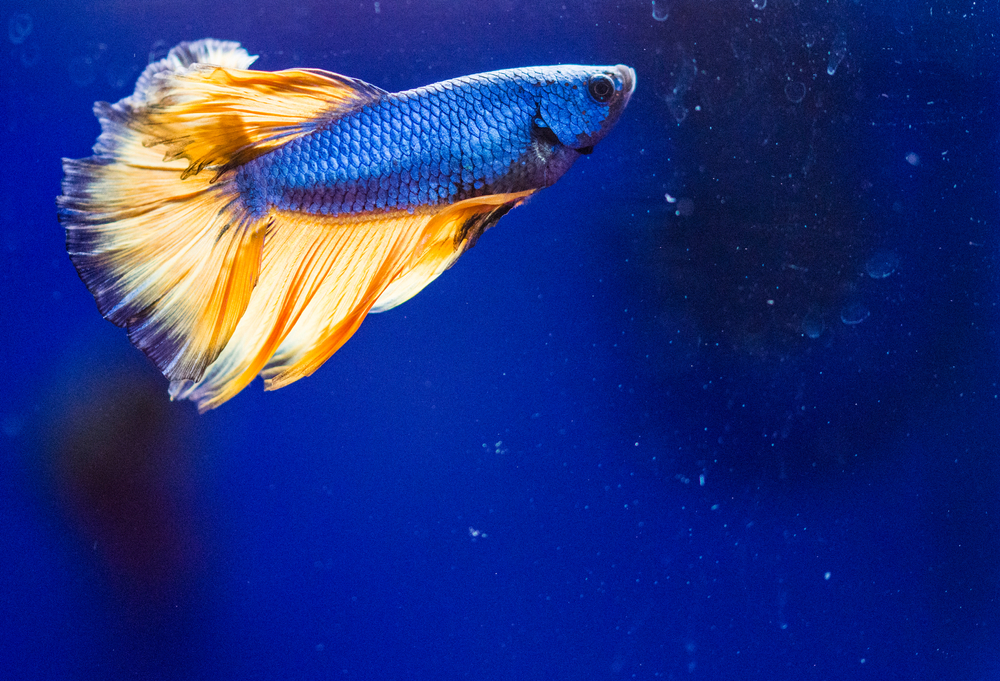There’s more than meets the eyes with bettas. These fish are more than your average aquarium pet; they’re a pretty intelligent species. While a betta’s intelligence is one of their unique and often overlooked features, it makes them a genuinely captivating species to study and care for. You’ll get to experience a unique side of these fish.
Today, we will learn all about betta fish intelligence, from their ability to navigate mazes to their knack for recognizing their favorite humans. We’ll even explore the joy of teaching your betta fish some cool tricks, a process that can be as rewarding for you as it is for them.
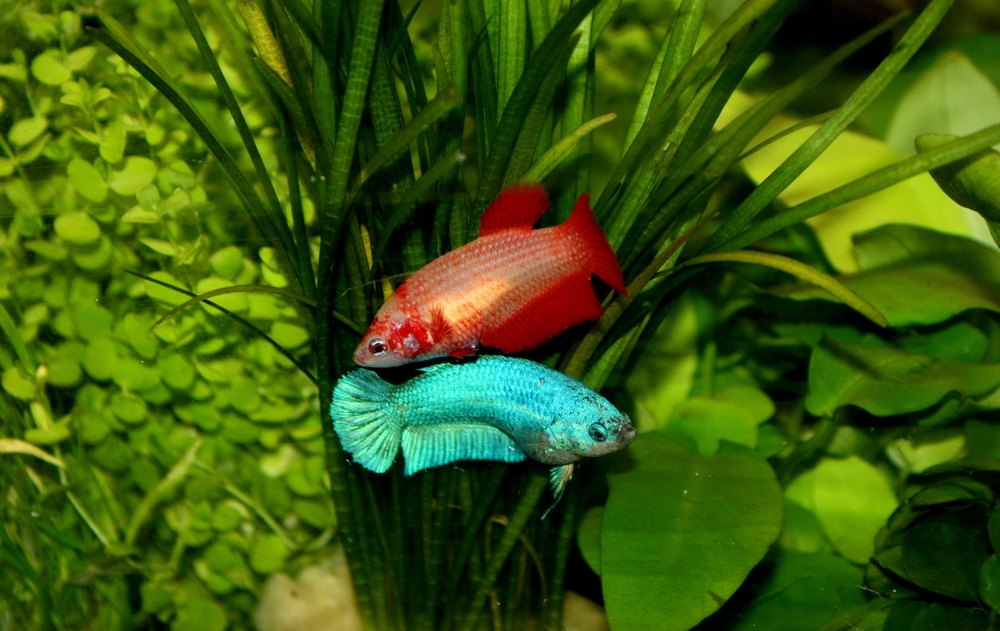
So, whether you’re a seasoned aquarist or a curious beginner, this is your guide to unlocking the hidden potential of your betta fish. Get ready to be amazed by their intelligence and learn how to create a thriving underwater space that caters to their curious minds and playful personalities. Remember, their well-being is in your hands.
Contents
Understanding Betta Fish Intelligence
Betta fish are fascinating creatures that have captured the attention of many aquarium enthusiasts. One aspect of these vibrant fish that often intrigues people is their level of intelligence. Let’s discuss betta fish intelligence and understand how they interact with their environment.
Cognitive Abilities and Learning
Betta fish have relatively simple brains compared to more complex vertebrates but still exhibit impressive cognitive abilities. They can recognize their owners, remember feeding schedules, and even learn to perform simple tricks, like swimming through hoops or pushing a ball.
These behaviors suggest that betta fish have a certain level of problem-solving skills and the ability to learn and remember.
Social Interaction and Recognition
One of the most intriguing aspects of betta fish intelligence is their social interaction. They can recognize humans and show excitement when their primary caregivers are around, which suggests they have an excellent visual memory.
Territorial Behavior
Betta fish are known for their territorial nature, which is a crucial aspect of their intelligence. They can recognize and remember other individual betta fish, and they will aggressively defend their territory from perceived threats. This ability to identify and respond to other fish in their environment shows their cognitive capabilities.
Betta Emotional Responses
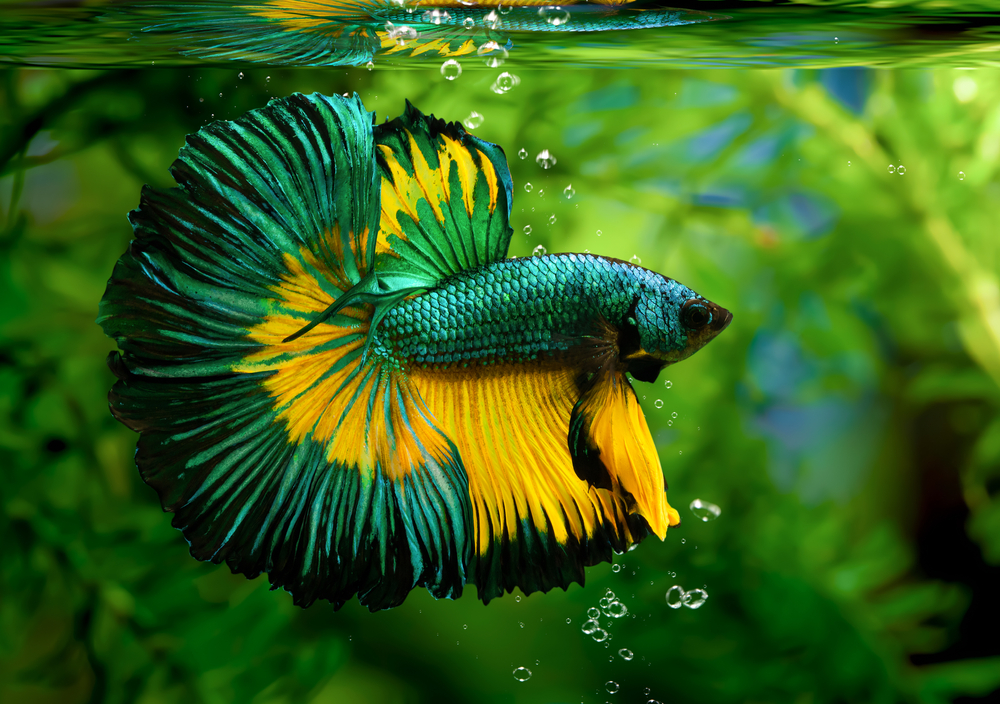
While the emotional lives of fish are still a mystery, there are signs that betta fish can experience and display a range of emotions.
They may show signs of stress or anxiety when exposed to certain stimuli, and they can also exhibit behaviors that suggest they experience pleasure or excitement, such as flaring their fins or swimming with vigor.
Training and Tricks Performance
Surprisingly, betta fish can be easily trained to perform tricks, which is a testament to their mental stimulation needs and memory capacity. You can teach them to jump for food or navigate through hoops with the right training kits and patience.
The success of their training relies heavily on your trust and patience, which, when established, allows for consistent performance.
Get to know and understand your betta friend more from these other top sought posts:
- Will a Betta Kill a African Dwarf Frog?
- Why Do Betta Fish Flare Their Gills?
- How Many Eggs Do Betta Fish Lay?
Creating a Stimulating Environment

A well-conceived habitat is vital for the cognitive development of betta fish. Focus on tank setup and enrichment to provide both physical and mental stimulation, while an optimized diet ensures they get the nutrition needed for proper health and behavior.
Tank Setup and Enrichment
When setting up a tank for your Betta fish, here are some key points to keep in mind:
Tank Size:
- Betta fish need at least a 5-gallon tank to thrive.
- A larger tank provides more stable water conditions for bettas.
Water Conditions:
- Maintain a temperature between 75-80°F (24-27°C).
- Use a filter to keep the water clean.
- Change the water regularly.
Tank Decor:
- Provide hiding spots like plants and caves.
- Avoid sharp decorations that can harm your betta.
Enrichment:
- Betta fish enjoy exploring, so add plants and decorations for them to swim around.
- Use floating plants to create shaded areas.
- Create resting spots near the surface for your bettas.
Following these tips can create a comfortable and enriching environment where your betta fish can thrive.
Diet and Nutrition
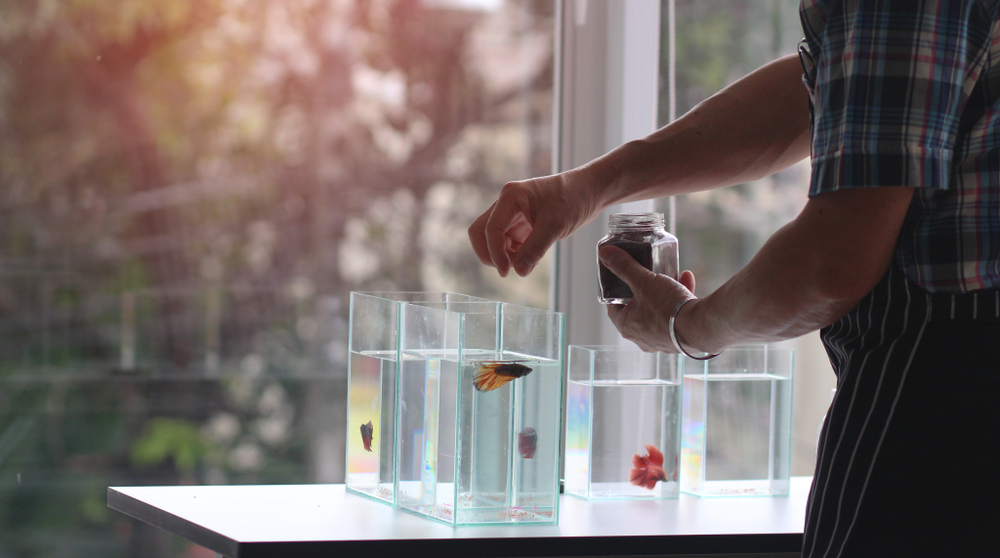
Proper nutrition is vital for keeping your betta healthy and thriving. Here’s a quick overview of what you need to know about their diet.
What to Feed Your Betta Fish
Bettas are predatory fish, meaning they primarily eat other small animals in the wild. Their diet should consist mainly of the following:
- Pellets or flakes: These are specially formulated to meet a betta’s nutritional needs.
- Freeze-dried or frozen foods like brine shrimp, bloodworms, and daphnia.
- Occasional live foods like mosquito larvae or small feeder fish.
It’s best to feed your betta 2-3 small meals daily rather than one large feeding. This helps prevent overfeeding.
How Much to Feed Your Betta Fish?
The amount to feed will depend on the size of your betta, but a general guideline is as follows:
- Small bettas (under 1 inch): Feed them 2-3 pellets or a small pinch of flakes 2-3 times daily.
- Medium bettas (1-2 inches): Give them 3-5 pellets or a small pinch of flakes 2-3 times daily.
- Giant bettas (over 2 inches): Feed them 5-7 pellets or a small pinch of flakes 2-3 times daily.
It’s important not to overfeed, as this can cause swim bladder issues and other health problems. Always remove any uneaten food to keep the water clean.
Remember, proper feeding is just one aspect of caring for a healthy betta. Maintaining good water quality, providing the proper tank setup, and giving your betta plenty of enrichment is vital for their well-being.
Betta Fish Care and Well-being
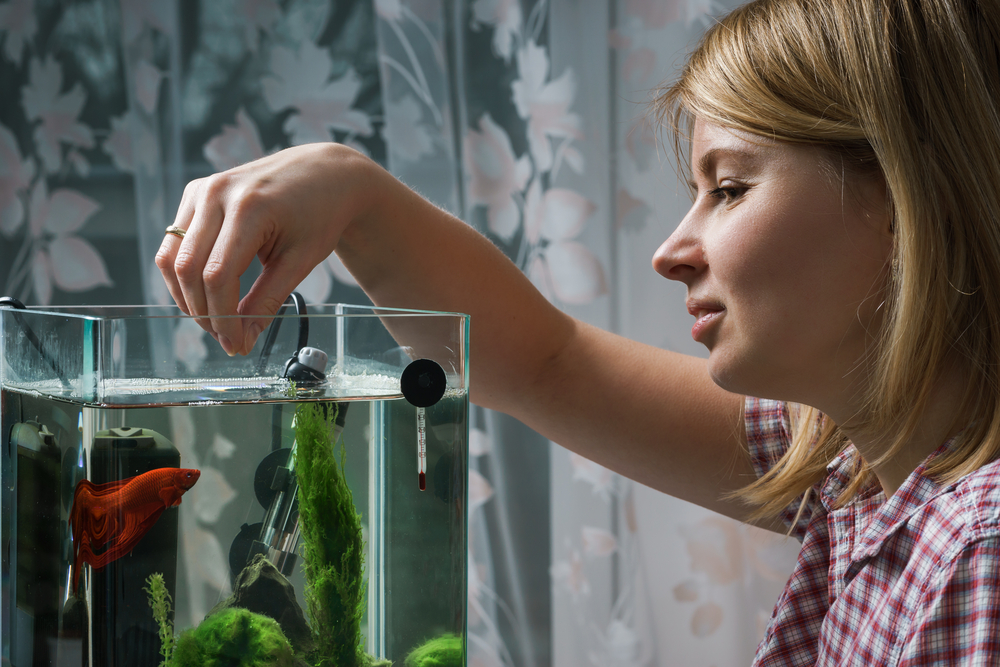
Taking care of your betta fish involves providing a suitable environment with a tank size of at least 2.5 gallons, clean water with a pH of 6.5-7.5, and a varied diet of high-quality betta food. It’s important to avoid overfeeding and choose tank mates carefully to prevent aggression.
As stated earlier, you want your tank to have many hiding spots. You also want to monitor your betta’s health regularly and seek veterinary care when needed. Following these basic care tips, you can enjoy a thriving and colorful betta fish as a delightful addition to your home.
Final Thoughts on Are Betta Fish Smart
So, there you have it! Betta fish are full of surprises, packing more smarts than their shiny scales might suggest. By remembering the key points in this guide—providing a stimulating tank with hiding spots and live plants, feeding them a varied diet, and teaching them tricks—you can unveil their hidden potential and create a thriving underwater paradise they’ll love.
Frequently Asked Questions

Betta fish are known for their smarts, and many are curious about their intelligence. Let’s answer some of the most common questions about betta fish intelligence and behavior so you can learn more about these fascinating fish.
Do betta fish recognize their owners?
Yes, betta fish can recognize their owners. Bettas can learn to associate their owners with food and other positive experiences. They may even swim up to the front of the tank when they see their owner approaching. However, it’s important to note that their recognition is limited, and they don’t form deep emotional bonds like pets do.
Do betta fish have memory?
Yes, betta fish have short-term memory. They can remember things like where their food comes from and recognize their owners. However, their memory is less advanced than higher vertebrates.
Is it possible to train a betta fish to perform tricks?
Indeed, you can train betta fish to perform tricks such as jumping over barriers or flaring on cue. This is typically achieved using positive reinforcement techniques, such as rewarding them with food.
What are the signs of emotional responses in betta fish?
Signs of emotional responses in betta fish can be subtle, including changes in activity levels or feeding behavior. They may show excitement when you approach the tank, indicating they associate you with positive experiences like feeding.
Do betta fish have feelings?
It’s difficult to know for sure if betta fish have feelings in the same way humans do. Fish have a much simpler nervous system compared to humans and other mammals.
While they can experience basic emotions like fear, anger, and contentment, they likely don’t have the complex feelings humans have.
How can you interact with betta fish in a meaningful way?
You can engage with them by tracing your finger on the glass of their tank, to which they often respond by following it, providing both mental stimulation and physical activity.

Ian Sterling, founder of Fishlab.com, began his aquarium journey over 30 years ago, driven by a deep fascination for fish and their diverse personalities. His website, Fishlab.com, is dedicated to making fishkeeping accessible and enjoyable, offering beginner-friendly guidance, expert insights, and a community for aquarists to connect and share experiences.


